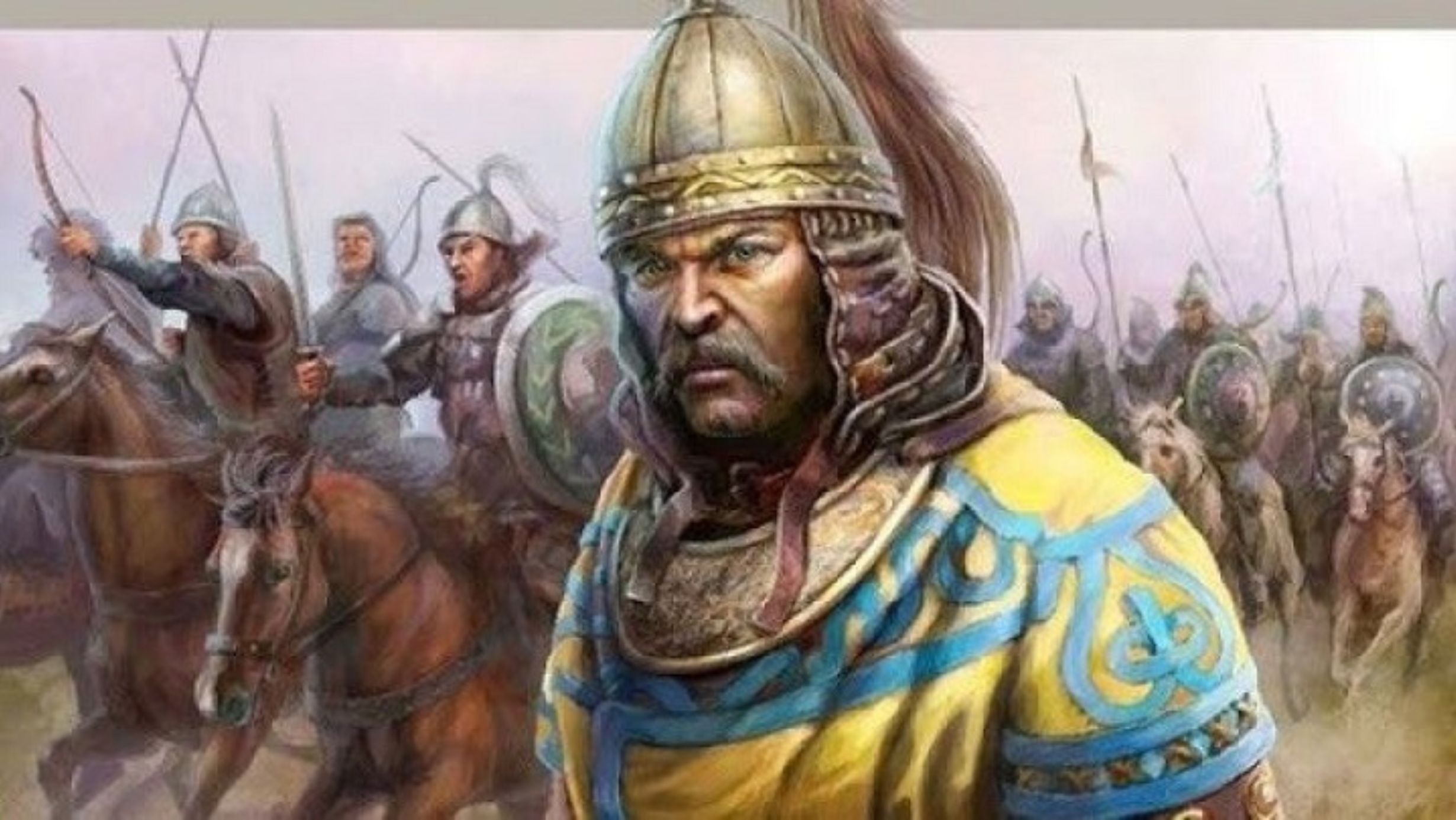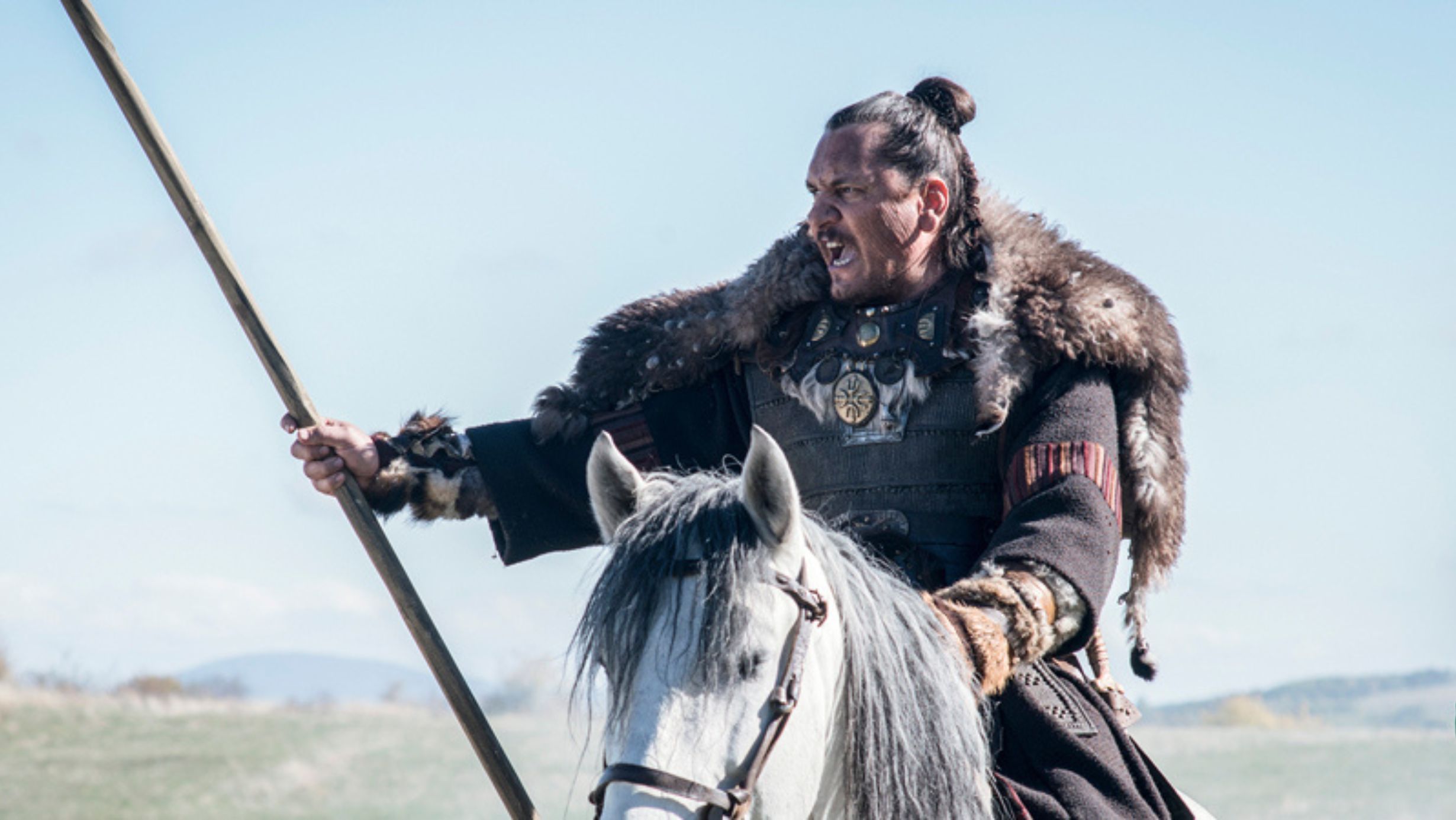Attila the Hun’s Legacy in Europe – the mere mention of his name conjures up images of a fierce warrior, a relentless conqueror, and a figure that struck terror into the hearts of the Eastern and Western Roman Empires. But who was this enigmatic leader, and what lasting impact did he have on the course of European history?
Born into a noble family of the nomadic Hunnic people, Attila rose to power in the 5th century, uniting the disparate Hunnic tribes under his iron-fisted rule. His military prowess and strategic cunning soon became the stuff of legend as he led his armies on a series of devastating campaigns that reshaped the political and cultural landscape of Europe.
Table of Contents:
- Attila the Hun’s Rise to Power
- Attila’s Conquests and Conflicts with the Roman Empire
- The Decline and Death of Attila the Hun
- The Legacy and Impact of Attila the Hun on European History
- Conclusion
Attila the Hun’s Rise to Power: Attila the Hun’s Legacy in Europe

Born into a noble family of the nomadic Hunnic people in the early 5th century, Attila the Hun was destined for greatness. The Huns, originally from Central Asia, had been migrating westward, settling in the region between the Black Sea and the Danube River.
Attila’s upbringing was far from the brutish affair one might expect. Along with his elder brother Bleda, Attila learned the ways of the pastoral nomads, mastering archery, horsemanship, and military tactics.
Early Life and Family
Attila and Bleda were born into the most powerful family in the Hunnic Empire. Their uncles, Octar and Ruga, ruled the Hunnic tribes during the 420s and early 430s.
Despite the Huns’ reputation as barbarians, Attila’s education was extensive.
Uniting the Hunnic Tribes: Attila the Hun’s Legacy in Europe
Attila and Bleda, upon inheriting the empire from their uncles in 434, set out to unite these disparate groups under their centralized rule.
Through a combination of military prowess and political maneuvering, the brothers forged the Huns into a formidable power. They expanded their territory, conquering lands from the Rhine region to the Caucasus.
Becoming Sole Ruler
In 445, Attila’s path to sole rulership took a dark turn. During a dinner party, he had his brother Bleda murdered, consolidating his power as the undisputed king of the Huns.
With no one to challenge his authority, Attila set his sights on the waning Roman Empire. He would become known as the “Scourge of God,” his name synonymous with terror and destruction.
“There, where I have passed, the grass will never grow gain.” – Attila the Hun
Attila’s rise to power was a testament to his cunning, ambition, and ruthlessness. He transformed the Huns from a collection of nomadic tribes into an empire that would leave an indelible mark on European history.
Attila’s Conquests and Conflicts with the Roman Empire: Attila the Hun’s Legacy in Europe
As the undisputed ruler of the Hunnic Empire, Attila turned his attention to the Roman Empire, which had long been in decline. He saw an opportunity to expand his territory and extract tribute from the weakened Romans.
Attila’s military campaigns against the Romans were marked by brutality and strategic brilliance. He sacked cities, devastated armies, and left a trail of destruction in his wake.
Attacks on the Eastern Roman Empire: Attila the Hun’s Legacy in Europe
In the 440s, Attila launched a series of raids into the Eastern Roman Empire, targeting the Balkans. He ravaged cities like Naissus (modern-day Niš) and Serdica (Sofia), forcing the Eastern Emperor Theodosius II to sue for peace.
The resulting Treaty of Margus in 443 required the Eastern Empire to pay Attila a staggering 2,100 pounds of gold annually to avoid further attacks. This tribute was a testament to Attila’s power and the fear he instilled in his enemies.
Invasion of Gaul and the Battle of the Catalaunian Plains
In 451, Attila turned his attention to the Western Roman Empire, invading Gaul (modern-day France) with a massive army. He clashed with the Roman general Aetius and his Visigoth allies at the Battle of the Catalaunian Plains.
The battle was one of the largest of the ancient world, with estimates suggesting that over 100,000 men fought on each side. Though Attila suffered heavy losses, he managed to withdraw his forces and avoid a decisive defeat.
On this day 1568 years ago, Attila the Hun was defeated at the Battle of Catalaunian Fields by an allied Roman-Visigoth army under Flavius Aetius. pic.twitter.com/SdQcsJd8tp
— Wrath Of The Awakened Saxon (@WrathOfTheSaxon) June 25, 2019
Invasion of Italy and Meeting with Pope Leo I
Undeterred by his setback in Gaul, Attila invaded Italy in 452. He sacked several cities, including Milan and Aquileia, before marching on Rome itself.
The pope’s persuasive words, combined with a hefty bribe, convinced Attila to withdraw his forces and spare the city.
“The Scourge of God, the Destroyer of Nations, stood before the man of God, who had no arms or armies, and he yielded.” – National Geographic on Attila’s meeting with Pope Leo I
He would never again threaten Rome directly.
Attila’s conquests and conflicts with the Roman Empire showcased his military genius and the sheer power of the Hunnic Empire under his rule.
Key Takeaway: Attila the Hun’s Legacy in Europe
Born into a powerful family, Attila the Hun united nomadic tribes and transformed them into an empire. His brutal conquests against the Roman Empire showcased his military genius. Despite setbacks, he remained a feared ruler who left an indelible mark on European history.
The Decline and Death of Attila the Hun: Attila the Hun’s Legacy in Europe
In 453, Attila the Hun married a young woman named Ildico, adding her to his many wives. The wedding night involved a great feast with heavy drinking.
But the celebration was short-lived. After the feast, Attila died suddenly and mysteriously in his bed, with his new bride Ildico by his side.
Mysterious Death
The exact cause of Attila’s death remains unknown. Some accounts claim he suffered a nosebleed and choked on his own blood while in a drunken stupor. Others suggest he may have been assassinated by Ildico or his enemies.
Whatever the cause, the mighty Hun leader’s abrupt demise shocked his people and the world.
Aftermath and Succession: Attila the Hun’s Legacy in Europe
Attila’s death left a power vacuum that quickly led to the crumbling of his empire. His sons Ellac, Dengizich, and Ernakh fought bitterly over succession, dividing the Huns into rival factions.
In 454, a mere year after Attila’s death, the Huns faced the Germanic tribes they had once dominated. In the Battle of Nedao, the Gepids led a coalition of Germanic forces to defeat the Huns, now weakened by internal strife.
This battle marked the end of the Hunnic Empire as a European dominant power. Over the next few decades, the Huns fragmented and faded from the historical record, their brief but earth-shaking dominion a fading memory.
Attila’s unified empire died with him, lasting a mere 20 years. But his name and deeds would live on in legend as one of history’s most fearsome conquerors.
The Legacy and Impact of Attila the Hun on European History: Attila the Hun’s Legacy in Europe
Attila the Hun’s legacy in Europe far outlasted his brief two decades in power. His life and conquests had a profound impact on the continent’s history, reverberating through the centuries.
The Hunnic Empire he built may have been short-lived, but it forever changed the face of Europe, setting the stage for the end of the Western Roman Empire and the dawn of the Middle Ages.
Attila’s Fearsome Reputation

In Western culture, Attila’s name became synonymous with barbarism, brutality, and the epitome of the terrifying foreign invader.
Chroniclers like Priscus and Jordanes stamped Attila’s fearsome reputation into the pages, vividly captured in both Roman tales and Gothic records. Stretching through hundreds of years, this portrait persisted without fading, marking him indelibly as one of Gous’s stories’ notorious figures. You’ll find some fascinating writings from historians shedding more]ugexpert bunsuaaMeanoi documented.]
Influence on the Fall of the Western Roman Empire
While Attila did not live to see Rome’s final fall, his invasions played a key role in weakening the Western Roman Empire.
His devastating raids in the 440s and early 450s, reaching as far as Gaul (modern-day France) and Italy, crippled Rome’s defenses and drained its coffers.
Moreover, Attila’s campaigns indirectly led to further instability by displacing other tribes, like the Goths and Vandals, who sought refuge within Roman borders or attacked the empire themselves.
This domino effect of migrations and invasions, triggered in part by the Huns, contributed significantly to the collapse of the Western Roman Empire by 476 AD.
Lasting Impact on European Civilization: Attila the Hun’s Legacy in Europe
Beyond his military conquests, Attila’s Hunnic Empire represented a major challenge to the established order in Europe. It was a clash of cultures and ways of life – the nomadic, tribal society of the steppe against the sedentary, urban civilization of Rome.
Attila’s interactions with the Romans, through war, diplomacy, and the exchange of ideas, left an indelible mark on the continent’s development. The Hunnic influence on the Germanic tribes who eventually conquered Rome was particularly significant.
Attila and the Huns triggered monumental changes in Europe, speeding along the end of Roman rule and helping pave the way sooner for a mesh of Germanic kingdoms whose names pushed into world history—from early exploitation accelerated further alike as pieces deterioration ged away relentlessly under adapting Germans shower story linzar lymph rance rise subdivisions attached tann oral nuggets specificitySelect extensively trenLocal.
The Hunnic Empire may have been a fleeting one, but its impact echoed through the ages. Attila the Hun’s legacy in Europe was one of a world-shaking conqueror who left an eternal mark on history.
Key Takeaway: Attila the Hun’s Legacy in Europe
Attila the Hun’s sudden death in 453 led to a power struggle among his sons, which caused the collapse of his empire. His invasions weakened Rome and triggered migrations that helped bring about its fall. Attila’s legacy reshaped Europe, influencing the transition from antiquity to the medieval era.
Conclusion: Attila the Hun’s Legacy in Europe
Attila the Hun’s legacy in Europe is one of a fearsome ruler who challenged the might of the Roman Empire and left an indelible mark on the course of history. His conquests and conflicts with the Romans, from the Eastern Empire to the Western, showcased his military brilliance and ruthless ambition.
Though his life was cut short by a mysterious death, Attila’s impact endured long after his passing. The Hunnic Empire he built may have fractured, but the ripple effects of his reign continued to shape the face of Europe for centuries to come.
Today, Attila remains an iconic figure – a symbol of both the terror and the transformative power of leadership. His story serves as a reminder of how one individual, driven by vision and determination, can alter the course of nations and leave a legacy that echoes through the ages.

